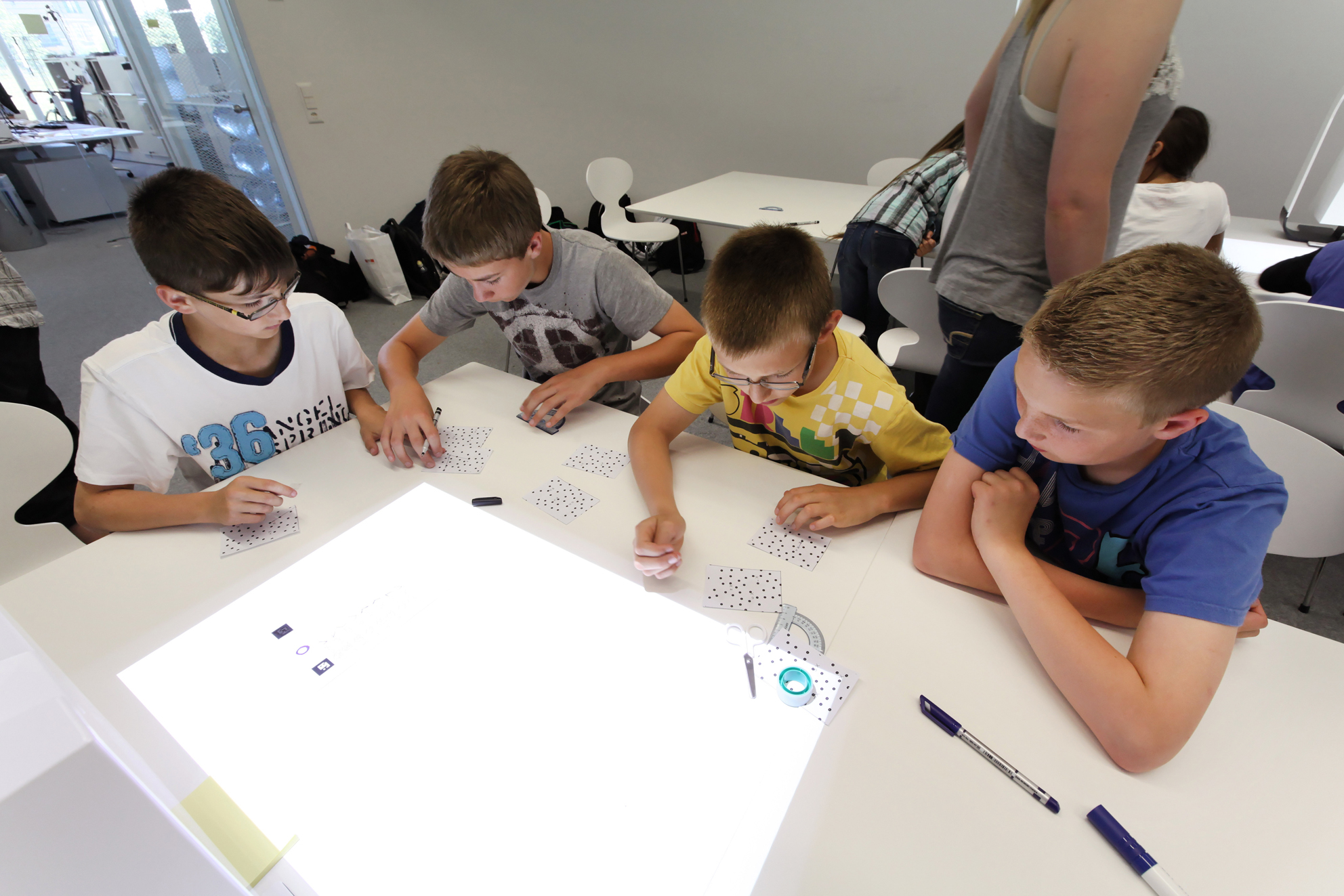Paper Interfaces for Geometry Education
Issue: XX.3 May + June 2013Page: 8
Digital Citation
Authors:
Quentin Bonnard, Amanda Legge, Anna Geiduschek, Frédéric Kaplan, Pierre Dittenbourg
Paper provides a rich medium for interface design. It allows for a wide range of interaction techniques that build on established cultural practices: printing, writing, reading, folding, cutting, and tearing. Paper interfaces are especially relevant to education because they use paper (the dominant technology in classrooms) while mixing the advantages of computer-supported education and tangible interfaces. Using a camera-projector system, we explore the tangible properties of these interfaces within the adapted context of geometry education. Both teachers and pupils readily adopted these interfaces during classroom experiments, and teachers especially appreciated the flexibility provided to create their own augmented reality activities.
Project website: http://craft.epfl.ch/lang/en/PaperTangibleInterface
Publication: Bonnard, Q., Jermann, P., Legge, A., Kaplan, F., and Dillenbourg, P. Tangible paper interfaces: Interpreting pupils' manipulations. Proc. of the 2012 ACM international Conference on Interactive Tabletops and Surfaces. ACM, New York, 2012.
Bonnard, Q., Verma, H., Kaplan, F., and Dillenbourg, P. Paper interfaces for learning geometry. Proc. of 7th European Conference on Technology Enhanced Learning (Saarbrücken, Germany). 2012.
Quentin Bonnard | CRAFT, École Polytechnique Fédérale de Lausanne (EPFL) | [email protected]
Amanda Legge | CRAFT, École Polytechnique Fédérale de Lausanne (EPFL) | [email protected]
Anna Geiduschek | CRAFT, École Polytechnique Fédérale de Lausanne (EPFL) | [email protected]
Frédéric Kaplan | CRAFT, École Polytechnique Fédérale de Lausanne (EPFL) | [email protected]
Pierre Dillenbourg | CRAFT, École Polytechnique Fédérale de Lausanne (EPFL) | [email protected]


